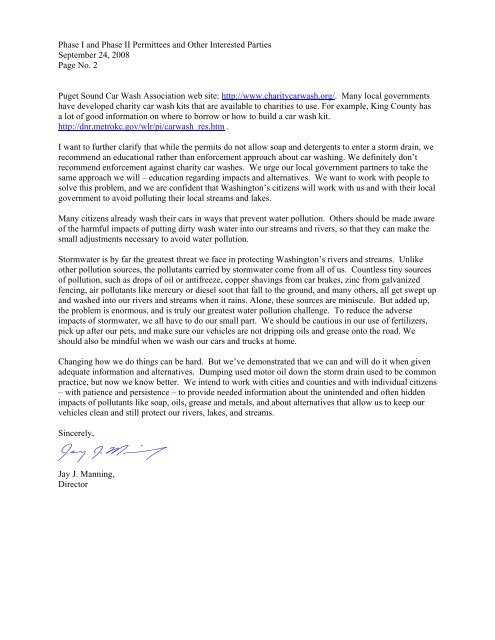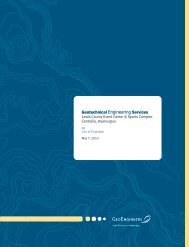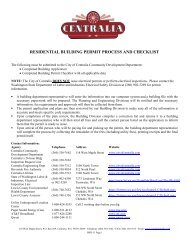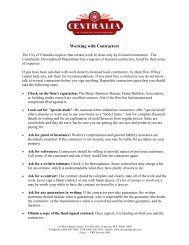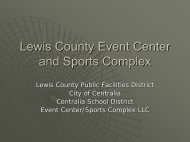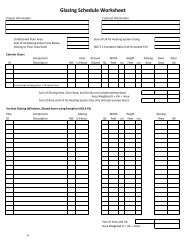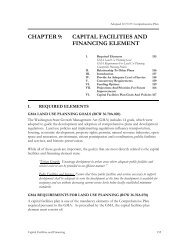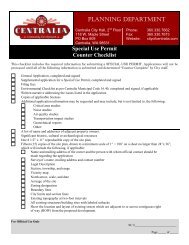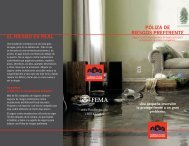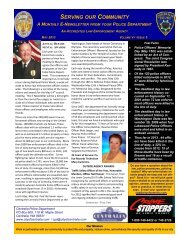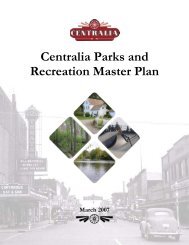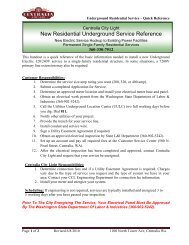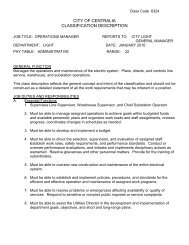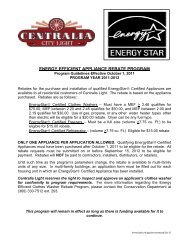car washing. This letter
car washing. This letter
car washing. This letter
You also want an ePaper? Increase the reach of your titles
YUMPU automatically turns print PDFs into web optimized ePapers that Google loves.
Phase I and Phase II Permittees and Other Interested Parties<br />
September 24, 2008<br />
Page No. 2<br />
Puget Sound Car Wash Association web site: http://www.charity<strong>car</strong>wash.org/. Many local governments<br />
have developed charity <strong>car</strong> wash kits that are available to charities to use. For example, King County has<br />
a lot of good information on where to borrow or how to build a <strong>car</strong> wash kit.<br />
http://dnr.metrokc.gov/wlr/pi/<strong>car</strong>wash_res.htm .<br />
I want to further clarify that while the permits do not allow soap and detergents to enter a storm drain, we<br />
recommend an educational rather than enforcement approach about <strong>car</strong> <strong>washing</strong>. We definitely don’t<br />
recommend enforcement against charity <strong>car</strong> washes. We urge our local government partners to take the<br />
same approach we will – education regarding impacts and alternatives. We want to work with people to<br />
solve this problem, and we are confident that Washington’s citizens will work with us and with their local<br />
government to avoid polluting their local streams and lakes.<br />
Many citizens already wash their <strong>car</strong>s in ways that prevent water pollution. Others should be made aware<br />
of the harmful impacts of putting dirty wash water into our streams and rivers, so that they can make the<br />
small adjustments necessary to avoid water pollution.<br />
Stormwater is by far the greatest threat we face in protecting Washington’s rivers and streams. Unlike<br />
other pollution sources, the pollutants <strong>car</strong>ried by stormwater come from all of us. Countless tiny sources<br />
of pollution, such as drops of oil or antifreeze, copper shavings from <strong>car</strong> brakes, zinc from galvanized<br />
fencing, air pollutants like mercury or diesel soot that fall to the ground, and many others, all get swept up<br />
and washed into our rivers and streams when it rains. Alone, these sources are miniscule. But added up,<br />
the problem is enormous, and is truly our greatest water pollution challenge. To reduce the adverse<br />
impacts of stormwater, we all have to do our small part. We should be cautious in our use of fertilizers,<br />
pick up after our pets, and make sure our vehicles are not dripping oils and grease onto the road. We<br />
should also be mindful when we wash our <strong>car</strong>s and trucks at home.<br />
Changing how we do things can be hard. But we’ve demonstrated that we can and will do it when given<br />
adequate information and alternatives. Dumping used motor oil down the storm drain used to be common<br />
practice, but now we know better. We intend to work with cities and counties and with individual citizens<br />
– with patience and persistence – to provide needed information about the unintended and often hidden<br />
impacts of pollutants like soap, oils, grease and metals, and about alternatives that allow us to keep our<br />
vehicles clean and still protect our rivers, lakes, and streams.<br />
Sincerely,<br />
Jay J. Manning,<br />
Director


